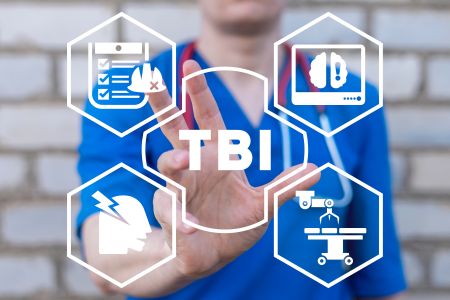Understanding Traumatic Brain Injuries After an Accident

Traumatic Brain Injuries (TBIs) are among the most serious and life-altering injuries anyone can suffer. In Florida, TBIs are considered catastrophic injuries. If you or a loved one has suffered a traumatic brain injury because of another party’s negligence, you may be entitled to significant compensation. In this article, we discuss what you need to know about traumatic brain injuries and how Florida law handles personal injury cases involving traumatic brain injuries.
What Is a Traumatic Brain Injury?
A traumatic brain injury, or TBI, is a brain injury that is caused by an outside force. This could be a blow, jolt, or forceful bump to the head or body. However, not every blow, jolt, or bump results in a TBI. A traumatic brain injury can also occur when an object penetrates brain tissue.
Traumatic brain injuries generally fall under three categories;
- Mild traumatic brain injury
- Moderate traumatic brain injury
- Severe brain injury
Causes of TBIs
The following are some of the common causes of TBIs;
- Slip and fall accidents
- Falls from heights
- Falling objects
- Motor vehicle accidents
Even a seemingly minor accident can result in a moderate to severe traumatic brain injury.
In Florida, if a person sustains a TBI due to another party’s negligence, the injured party or their family may be eligible to pursue compensation through a personal injury claim.
Symptoms of a Traumatic Brain Injury
Traumatic brain injuries can have wide-ranging symptoms, some of which might appear immediately after an accident and others that might become evident days or weeks later. Some of the symptoms a person may experience after sustaining a TBI include, depending on the severity of the injury;
- Headache
- Nausea or vomiting
- Speech problems
- Blurred vision
- Sensitivity to sound or light
- Loss of consciousness
- Concentration or memory problems
- Sleeping problems
- Depression or anxiety
- Mood swings or mood changes
Florida Law and TBI Claims
As stated already, in Florida, the law allows people who suffer TBIs or their families to pursue compensation through a personal injury claim. However, Florida has several strict regulations governing personal injury claims, including those involving TBIs.
- Comparative Fault Rule: Florida’s modified comparative fault rule bars recovery if a claimant in a TBI claim is more than 50% to blame for the accident giving rise to their injuries. And if a claimant is partially at fault, but less than 50% at fault, their claim is reduced by their percentage of fault.
- Statute of Limitations: The state’s statute of limitations prevents plaintiffs from filing claims if over two years have passed since the date of the injury.
- Elements to Prove: To bring a successful TBI claim in Florida, you must prove the four elements of negligence: duty of care, breach of duty, causation (that the breach caused the TBI), and damages.
Because of the complex laws governing personal injury cases, it is highly advisable to retain the services of a skilled attorney.
Recoverable Compensation
Florida law allows you to recover compensation for both economic and non-economic damages in a TBI claim, including the following;
- Medical expenses (both past and future)
- Lost income
- Loss of earning capacity
- Pain and suffering
- Loss of enjoyment of life
- Emotional distress
If a case involves gross negligence, in rare cases, punitive damages may be awarded on top of the above damages.
Contact a Tampa Catastrophic Injury Lawyer
If you or a loved one has suffered a traumatic brain injury, contact a Tampa catastrophic injury lawyer at Gunn Law Group P.A. for help seeking the justice and compensation you deserve.
Source:
leg.state.fl.us/statutes/index.cfm?App_mode=Display_Statute&URL=0700-0799/0768/Sections/0768.81.html

